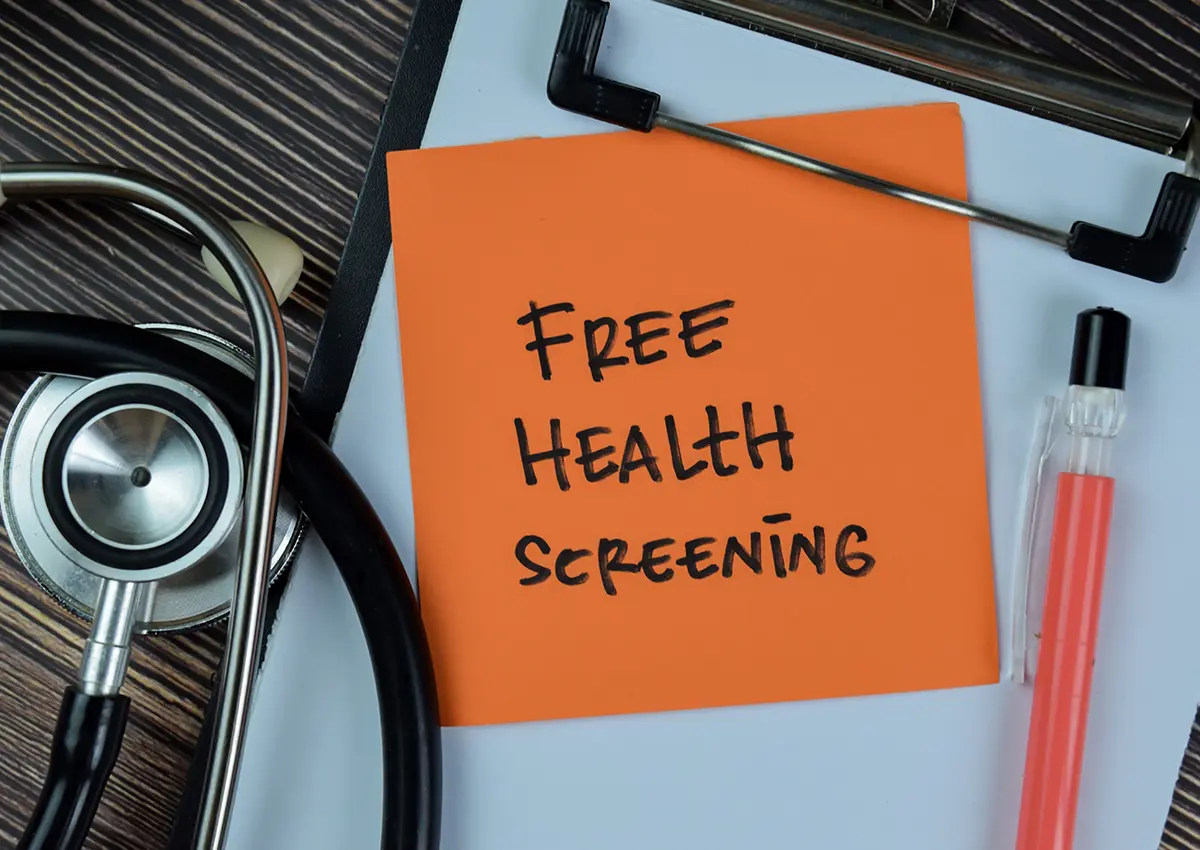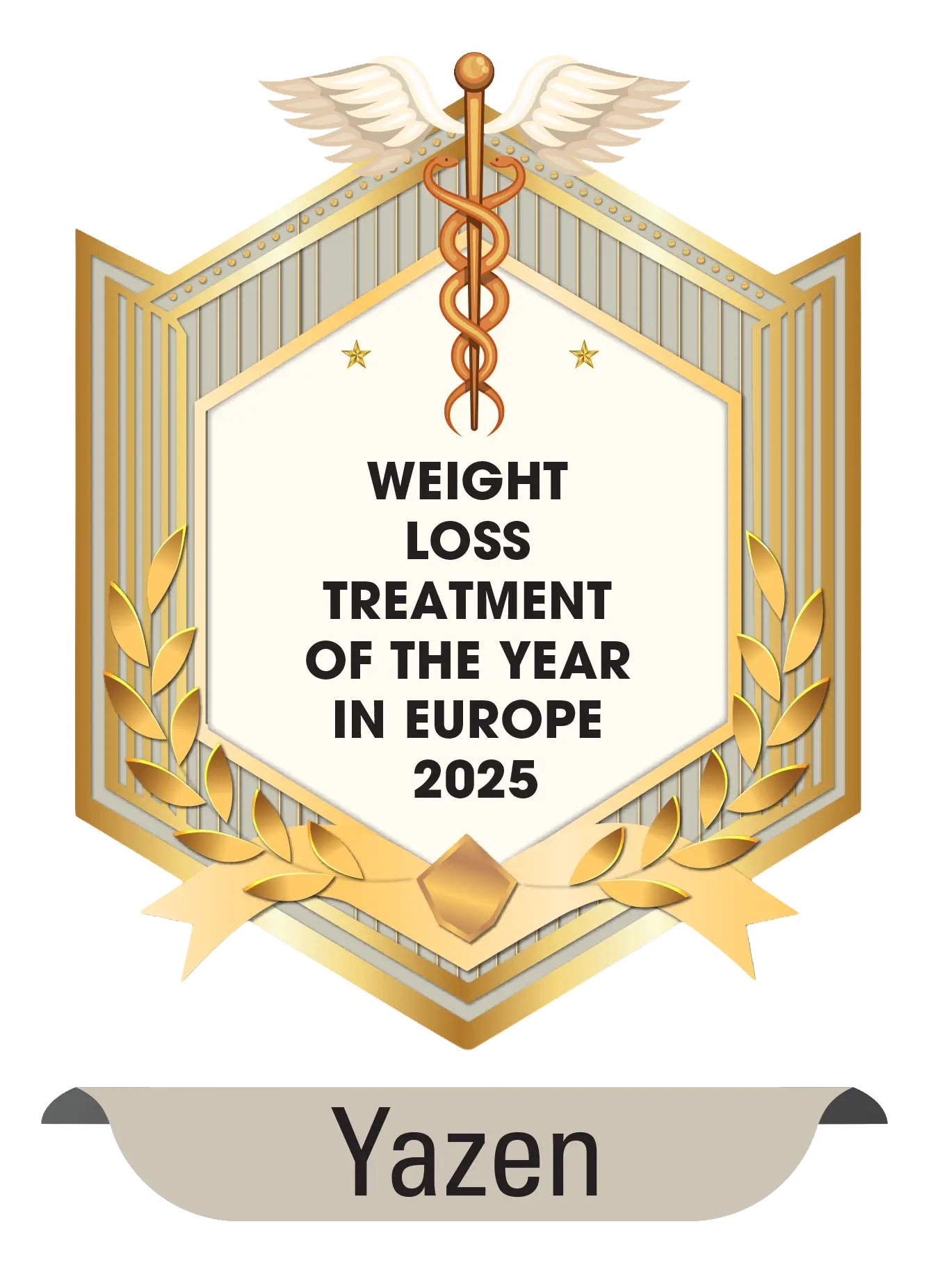Rybelsus (semaglutide) in the treatment of obesity
Rybelsus is a medicine containing the active substance semaglutide. It is approved for the treatment of adults with type 2 diabetes to improve glycaemic control as a complement to a healthy diet and physical activity.
The treatment may also contribute to weight loss (1,2).

What is Rybelsus?
Rybelsus belongs to the group of medicines known as GLP-1 receptor agonists. These improve the body’s ability to regulate blood glucose while also influencing appetite and satiety. Unlike Ozempic and Wegovy, Rybelsus is administered orally rather than subcutaneously (1).
How Rybelsus works
GLP-1 receptor agonists mimic the natural hormone GLP-1 (glucagon-like peptide-1). GLP-1 is normally released from the small intestine after a meal and affects several key functions involved in appetite regulation, satiety and blood glucose levels (2–4).
By enhancing these processes, Rybelsus can contribute to several effects:
- Improved blood glucose control: The treatment stimulates insulin release at elevated glucose levels and suppresses glucagon secretion, helping to maintain more stable glucose levels.
- Reduced appetite and increased satiety: The medicine affects the brain’s appetite centre, causing satiety to occur faster and last longer. This reduces energy intake and may therefore contribute to weight loss.
- Slower gastric emptying: Semaglutide delays stomach emptying, which stabilises post-meal blood glucose and enhances feelings of fullness.
Semaglutide in tablet form
Rybelsus has been shown to improve glycaemic control and reduce body weight with daily oral administration. This may increase adherence in patients who prefer tablets over injections.
The oral formulation requires careful adherence to dosing instructions to ensure adequate absorption. The choice of formulation should be based on the patient’s individual needs, preferences and clinical assessment by the treating physician.
Who can be treated with Rybelsus?
Rybelsus (semaglutide) is approved for the treatment of adults with type 2 diabetes as a complement to diet and physical activity when these measures alone are insufficient to achieve adequate blood glucose control.
Rybelsus is not approved for the treatment of obesity, but physicians may in some cases consider so-called off-label use — prescribing outside the approved indication — when deemed clinically appropriate and potentially beneficial for the patient.
In such cases, the same clinical criteria as for medicines approved for weight management are normally applied, such as BMI ≥ 30, or BMI ≥ 27 with weight-related comorbidity (such as hypertension, type 2 diabetes or dyslipidaemia).
The effect of Rybelsus on weight loss
Treatment with oral semaglutide at doses of 50 mg (OASIS-1) in adults with overweight or obesity (without type 2 diabetes) resulted in an average weight loss of around 15% after 68 weeks, compared with around 2.4% in the placebo group (3).
Weight loss and healthy weight
Combining medication with lifestyle changes such as healthier eating habits and physical activity helps patients achieve a healthy weight and reduce the risk of complications associated with type 2 diabetes and obesity (4,5).
Other factors supporting health and weight loss
To achieve the best possible results, treatment must be part of a comprehensive strategy. This means combining medication with healthy changes such as improved eating habits, regular physical activity, stress management and good sleep — ideally with support from healthcare professionals.
Diet for healthy weight with Rybelsus
Weight loss requires a calorie deficit — that is, energy intake must be lower than energy expenditure (5). Medication can support this by increasing satiety and reducing the hunger that often occurs when calories are restricted.
With lower energy intake, it is particularly important that the diet is nutrient-dense to supply necessary vitamins, minerals and protein. Adequate protein intake supports satiety, preserves muscle mass during weight loss and improves body composition — especially when combined with strength training.
Treatment should always be individualised based on the patient’s eating habits, preferences and circumstances.
The importance of regular physical activity
Physical activity is a key part of comprehensive weight-loss treatment. It enhances the effects of medication, improves overall wellbeing, and helps prevent or reduce side effects. It also helps maintain muscle mass, improves metabolism and boosts mental wellbeing. Regular movement can also reduce stress, improve sleep and lower the risk of complications (5).
Recommended activities include:
- Everyday movement: taking the stairs, cycling, walking or standing more often
- Aerobic activity: such as brisk walking, swimming or cycling
- Strength training 2–3 times per week, emphasised for maintaining muscle mass and supporting healthy body composition (6)
These recommendations should always be adapted to the individual’s abilities, limitations, health status and goals.
More sleep
Adequate sleep is essential for healthy weight regulation. Poor sleep affects several hormonal systems that regulate appetite, satiety and energy balance (7).
Less stress
Chronic stress can lead to elevated cortisol levels, which influence appetite regulation and metabolism (8). Stress is a highly individual experience shaped by personality, life situation and past experiences. Support and treatment must therefore be tailored to each person’s needs.
For some, this may mean reducing external stressors; for others, strengthening recovery and developing coping strategies. Regular movement, sufficient sleep and stress-reduction techniques can all play a valuable role.
Summary – Rybelsus
Rybelsus (semaglutide) is approved for the treatment of adults with type 2 diabetes and supports improved glycaemic control. The treatment may also lead to clinically relevant reductions in body weight, partly through effects on hunger and satiety.
There is strong evidence for the importance of seeking support to help make long-term lifestyle changes and healthy choices. This is crucial for reducing disease risk and maintaining a stable weight. Combined with regular physical activity and healthy eating habits, Rybelsus can provide long-term results and reduce the risk of serious diseases and conditions such as high blood pressure and cardiovascular disease.
References
- European Medicines Agency (EMA). Rybelsus: EPAR – Product Information. Available at: https://www.ema.europa.eu/en/medicines/human/EPAR/rybelsus
- Springer Review: Progress and challenges in obesity pharmacotherapy: semaglutide as a therapeutic option. Naunyn-Schmiedeberg’s Archives of Pharmacology. 2025. Available at: https://link.springer.com/article/10.1007/s00210-025-04319-0
- The Lancet. Oral semaglutide 50 mg taken once per day in adults with overweight or obesity (OASIS-1): a randomised, double-blind, placebo-controlled, phase 3 trial. The Lancet. 2023;402(10303): 2038–2050. Available at: https://www.thelancet.com/journals/lancet/article/PIIS0140-6736(23)01185-6/fulltext
- Wong HJ, Sim B, Teo YH, Teo YN, Chan MY, Yeo LLL, Eng PC, Tan BYQ, Sattar N, Dalakoti M, Sia CH. Efficacy of GLP-1 Receptor Agonists on Weight Loss, BMI, and Waist Circumference for Patients With Obesity or Overweight: A Systematic Review, Meta-analysis, and Meta-regression of 47 Randomized Controlled Trials. Diabetes Care. 2025;48(2):292–300. https://doi.org/10.2337/dc24-1678
- Konstantinos C Koskinas, Emeline M Van Craenenbroeck, Charalambos Antoniades, Matthias Blüher, Thomas M Gorter, Henner Hanssen, Nikolaus Marx, Theresa A McDonagh, Geltrude Mingrone, Annika Rosengren, Eva B Prescott, the ESC Scientific Document Group. Obesity and cardiovascular disease: an ESC clinical consensus statement. European Heart Journal. 2024;45(38):4063–4098. https://doi.org/10.1093/eurheartj/ehae508
- World Health Organization (WHO). WHO Guidelines on Physical Activity and Sedentary Behaviour. Geneva: World Health Organization; 2020. Available at: https://www.who.int/publications/i/item/9789240015128
- Chaput JP, McHill AW, Cox RC, Broussard JL, Dutil C, da Costa BGG, Sampasa-Kanyinga H, Wright KP Jr. The role of insufficient sleep and circadian misalignment in obesity. Nat Rev Endocrinol. 2023 Feb;19(2):82-97. doi: 10.1038/s41574-022-00747-7. Epub 2022 Oct 24. PMID: 36280789; PMCID: PMC9590398.
- Lengton R, Schoenmakers M, Penninx BWJH, Boon MR, van Rossum EFC. Glucocorticoids and HPA axis regulation in the stress-obesity connection: A comprehensive overview of biological, physiological and behavioural dimensions. 2025. Available at: https://pubmed.ncbi.nlm.nih.gov/39623561/

November 18, 2025
November 26, 2025
Start your weight loss journey with Yazen today
Everything you need to do is to create an account and answer some questions about your health
.svg)
.svg)
More articles
Semaglutide for weight loss – information about the medicine
An increasing number of people today are living with overweight or obesity. Semaglutide has become one of the most effective medical treatments to help many people lose weight (1).
Semaglutide was originally developed as a treatment for type 2 diabetes, but clinical trials showed significant weight loss. The medication Wegovy (semaglutide 2.4 mg) is currently approved for weight management in adults with a BMI ≥ 30, or ≥ 27 with weight-related comorbidity (2).
Ozempic (semaglutide) in the treatment of obesity
Ozempic is a prescription medicine containing semaglutide as its active substance. This medicine was originally approved for the treatment of type 2 diabetes, but has since also been shown to contribute to clinically significant weight loss. Semaglutide has demonstrated significant improvements in body weight and metabolic markers in studies involving individuals with overweight or obesity. To make an informed decision about treatment, it is important that the person receives accurate information about how Ozempic works, who it is suitable for, and how it may affect long-term health (1,2).




.svg)

















